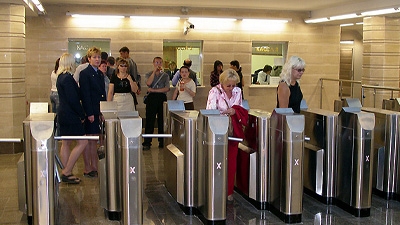Endless traffic, gridlocked roads, inadequate parking and aging public transportation systems – these issues resonate with people the world over on a daily basis. They are also of particular focus in the Russian Federation, where economic and social changes pose serious challenges for several cities that are faced with the increasing demand on transportation services.
To tackle these transport problems, it is important to develop a national framework that can help create prerequisites during planning for sustainable development of urban transport systems, according to a report, National Framework for Sustainable Urban Transport Systems -- Proposals for Improving Urban Transportation in Russian Cities, by the World Bank Group as a Reimbursable Advisory Service (RAS) for the Ministry of Transport of Russia.
The report focuses on strategic and territorial planning for developing transport systems, its management and setup, financing, legal framework, traffic safety and monitoring and supervision. It also analyzes the current state of the transport system in Russia and, looks at international good practices and how any recommendations can be tailored to fit the economic and political situation in Russia.
Transportation in Russian Cities Now
Urban transport is not treated as one coherent system in Russian cities, the report found.
Most public transport responsibility rests on municipalities, while land-use planning and transportation planning are done in silo, leaving gaps in areas like parking and resulting deficiency in road spaces and public transport access in newly developed areas. Another issue is that the financial resources allocated for urban transport in municipalities are inadequate and unpredictable, making it difficult for cities to plan their transport investment strategically.
Also, road maintenance, traffic management, the need for better mass transit networks and managing demand from those owning private vehicles are other areas that require improvement.
The aging legacy system is also a serious issue. Unlike developing countries, the former soviet country was endowed with good public transport system, which has not been properly managed, maintained or modernized, and thus not fulfilling its intended role in the face of rising private mobility.
Transition to a free market economy is not fully completed in the market of public transport services, and there is huge market inefficiency. Planning and operating existing road-based public transportation is also important, the report found.
Tackling the Transport Issue
To overhaul the transportation system in Russia, the report suggests adopting a new, comprehensive law on traffic management, and legislation on public transportation supply and operation.
Creating a national advisory facility to play a leading role in managing a national level urban transport database and providing guidelines and good practice examples to Russian cities, and developing and distributing toolkits for institutional and technical capacity building are some other measures to adopt to overhaul the transportation system, according to the report.
The plan’s financial assistance aspect must support pilot implementation of eligible projects and establish a federal targeted program, which links financial support with institutional and technical capacity development, the report found.

